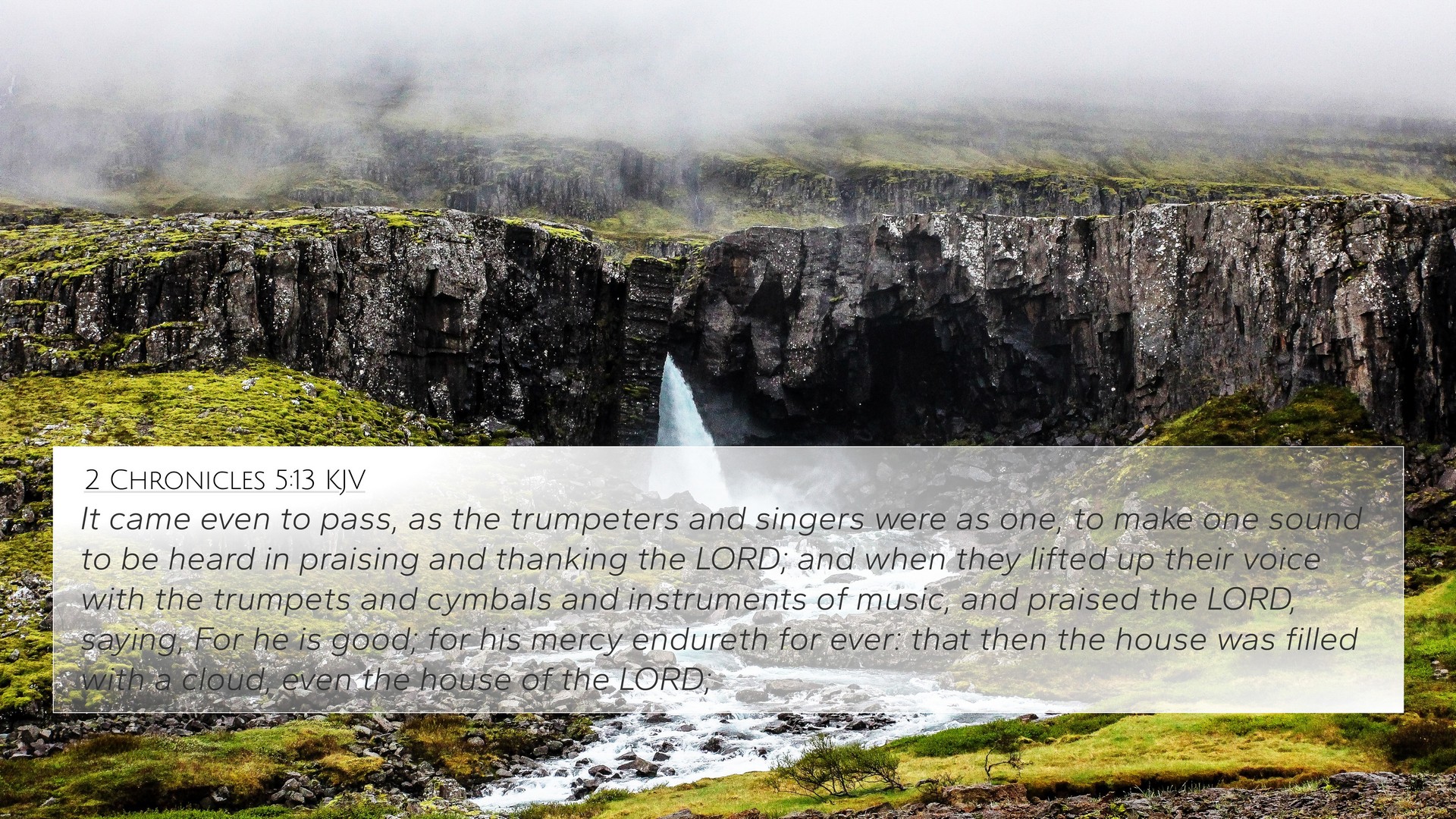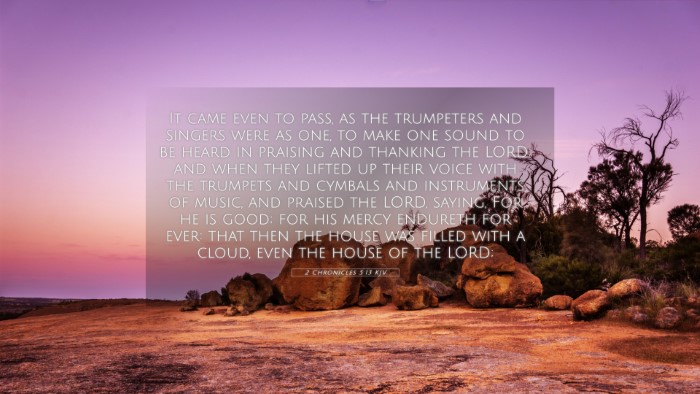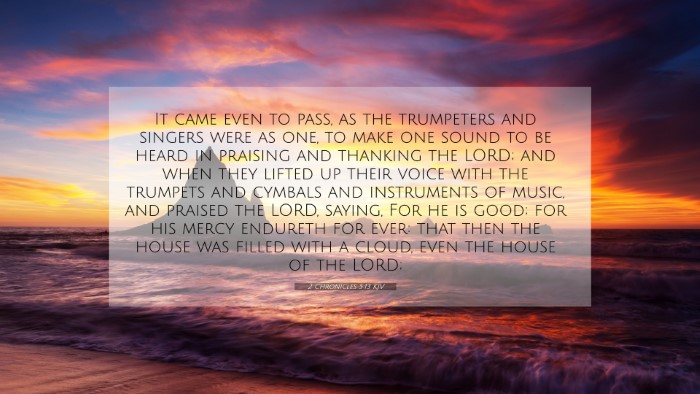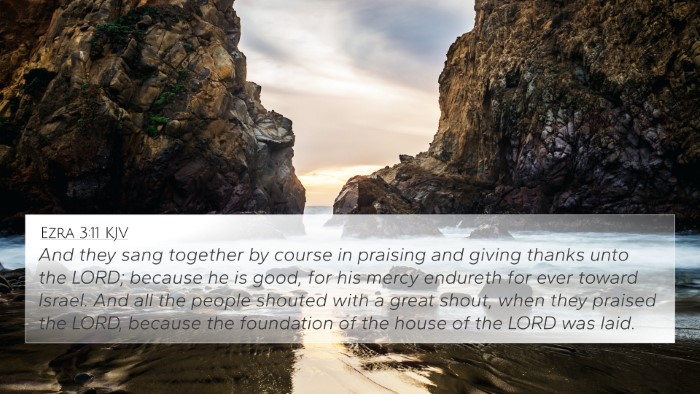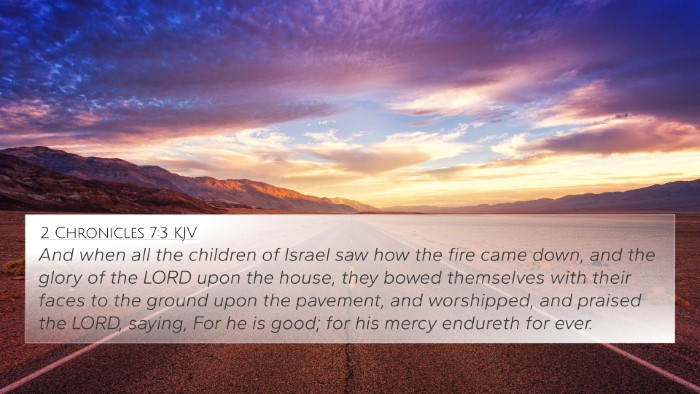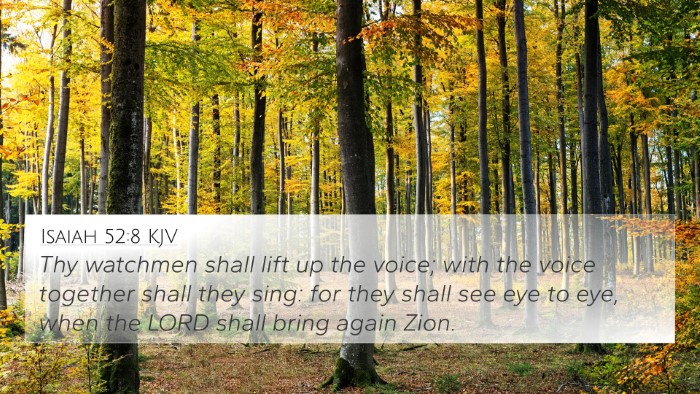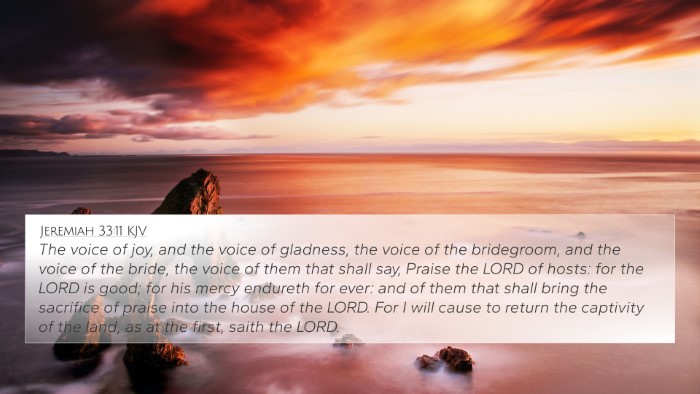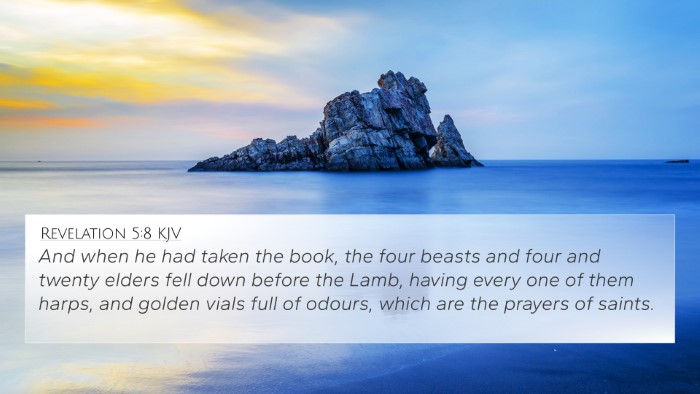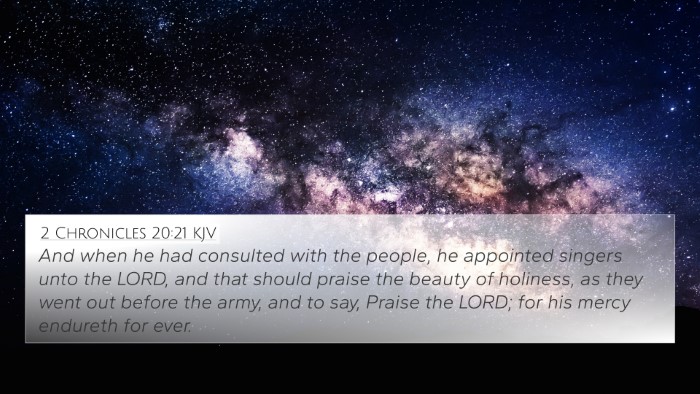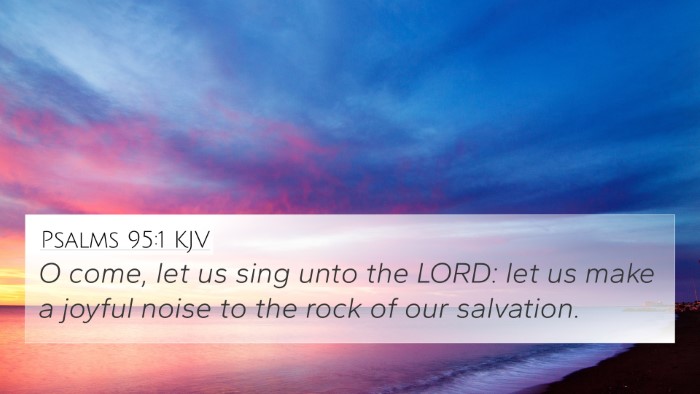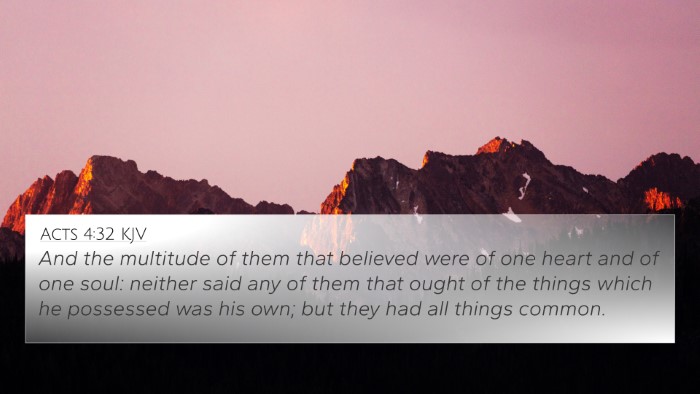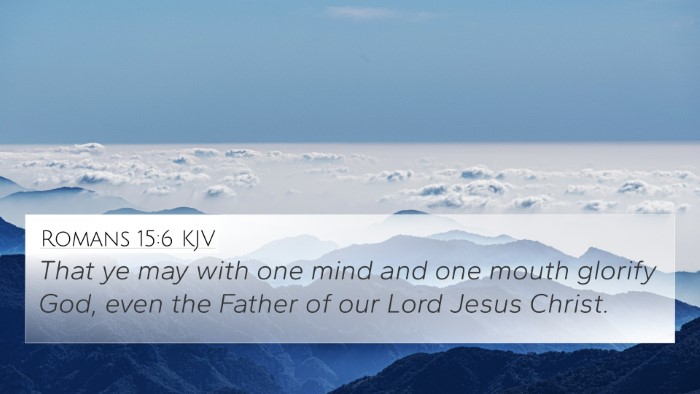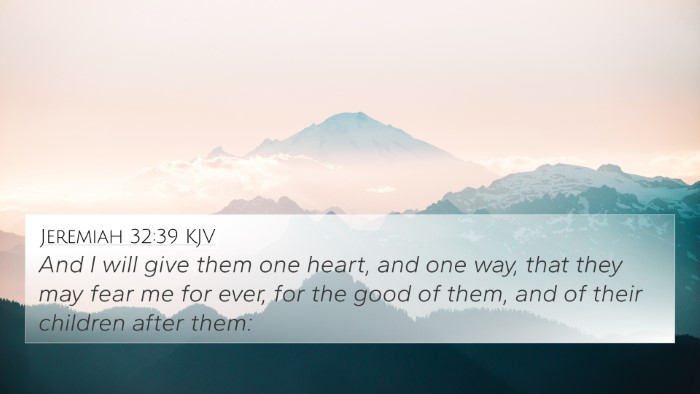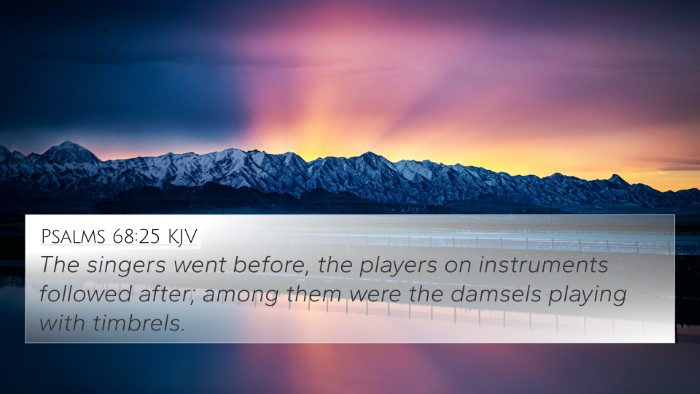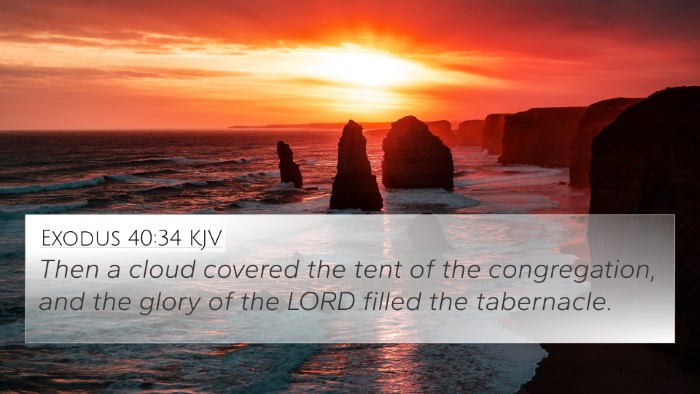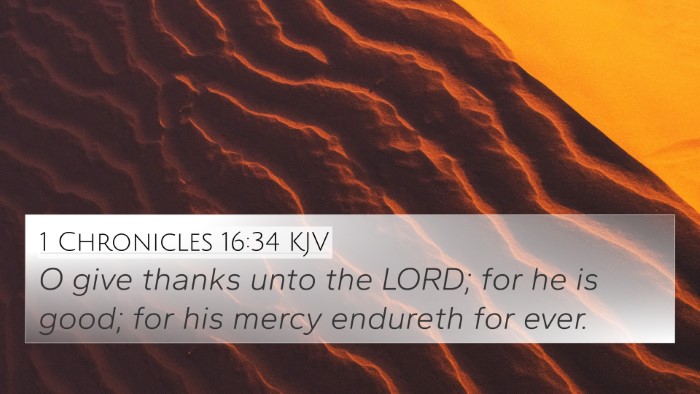Meaning and Interpretation of 2 Chronicles 5:13
2 Chronicles 5:13 states:
"It came even to pass, as the trumpeters and singers were as one, to make one sound to be heard in praising and thanking the LORD; and when they lifted up their voice with the trumpets and cymbals and instruments of music, and praised the LORD, saying, For he is good; for his mercy endureth forever: that then the house was filled with a cloud, even the house of the LORD;"
Summary of Insights from Public Domain Commentaries
This verse encapsulates a moment of profound worship during the dedication of Solomon's temple, where the unity of the musicians and singers creates a harmonious sound that pleases God. Various commentaries provide insights into the significance of the actions described and the broader themes connected to this event.
Matthew Henry's Commentary
Matthew Henry highlights the importance of unity in worship. He explains that the trumpeters and singers were united as one, indicating that collective praise was essential in bringing the presence of God into the temple. This event represents the fulfillment of God's promise to dwell among His people. Henry emphasizes that the sound they made was not merely for performance but was a spiritual declaration of thanksgiving to God for His enduring mercy.
Albert Barnes' Notes on the Bible
Albert Barnes interprets this moment as a culmination of the dedication service, underscoring that the lifting of voices and the playing of instruments served to magnify God's glory. He notes that the phrase "For he is good; for his mercy endureth forever" is a refrain found multiple times in scripture, which was a common expression of praise among the Israelites. The significance of declaring God's goodness and mercy in such a setting emphasizes God's character as foundational to Israel’s worship and identity.
Adam Clarke's Commentary
Adam Clarke provides insights into the nature of the cloud that filled the temple, associating it with the Shekinah glory of God. He explains this visible manifestation confirmed the presence of God among His people during worship, illustrating that God's acceptance of their offering leads to the physical evidence of His glory. Clarke also reflects on the historical context, linking this episode to earlier moments when God's presence was similarly made manifest among the Israelites.
Cross-References to 2 Chronicles 5:13
- 1 Chronicles 16:34: “O give thanks unto the LORD; for he is good; for his mercy endureth forever.” - Similar declaration of God's goodness and mercy.
- Psalm 136:1: “O give thanks unto the LORD; for he is good: for his mercy endureth forever.” - A psalm reiterating the theme of God’s eternal mercy.
- Exodus 40:34: “Then a cloud covered the tent of the congregation, and the glory of the LORD filled the tabernacle.” - The presence of God filling a dwelling place among His people.
- 2 Chronicles 7:1-2: The response of God to Solomon's dedication, highlighting His presence through fire or cloud.
- Acts 2:1-4: The unity of believers in prayer and worship resulting in the filling of the Holy Spirit.
- Hebrews 10:25: Encouragement for believers to gather together in worship, reflecting the importance of corporate worship.
- John 4:24: “God is a Spirit: and they that worship him must worship him in spirit and in truth.” - The spiritual nature of worship in relation to God's presence.
Thematic Connections
This verse and its surrounding context offer valuable insights into the themes of divine presence, worship, and unity. The following connections enhance the understanding of these themes:
- The necessity of unity among worshippers to invite God's presence.
- The significance of musical expression in worship throughout the Bible.
- The manifestation of God's glory as a confirmation of faith and obedience.
- The continuity of worship practices from the Old Testament to New Testament congregations.
Conclusion
In summary, 2 Chronicles 5:13 not only recounts a historical event but also lays down spiritual principles regarding worship and God's presence among His people. The collective expression of faith through music and praise creates an atmosphere where God's glory is revealed. The reflections from various commentaries, coupled with cross-references, illustrate deep relationships between scripture and the ongoing themes of worship and divine interaction in the biblical narrative.
